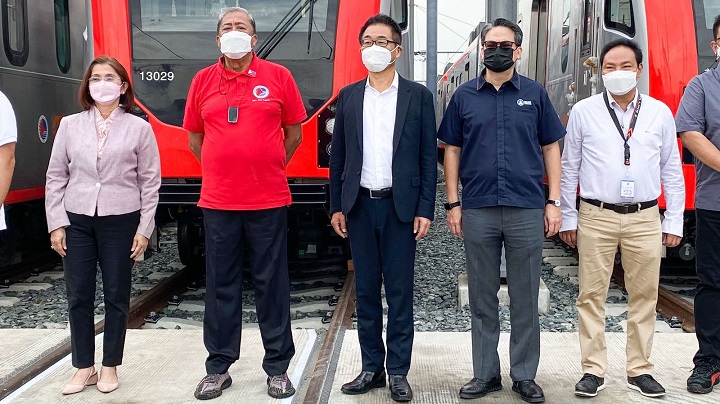LRT-1 private operator Light Rail Manila Corporation (LRMC) is poised to provide a modern railway system as it welcomes the civil works completion of the LRT-1 Baclaran Expansion Depot and gears up for the operations and maintenance of the new facility.
The expanded Baclaran Depot of the LRT-1 Cavite Extension Project was inaugurated in a ceremony led by officials from the Department of Transportation (DOTr), Light Rail Transit Authority (LRTA), Embassy of Japan, Japan International Cooperation Agency (JICA), and Pasay City Local Government. With the expansion of the LRT-1 Baclaran Depot, 4.2 hectares were added to the existing 6.4-hectare Baclaran Depot, giving way to more rail tracks and maintenance facilities to support more trainsets. The expansion project was funded through the Philippine government’s Official Development Assistance (ODA) received from the Japan International Cooperation Agency (JICA).

With the civil works completion of the new depot by the Philippine government, LRMC is all set to provide the electromechanical and rail systems works which include traction power supply, overhead catenary systems, and trackworks. LRMC’s role is to ensure that these works are compatible with the existing LRT-1 system and the future Cavite Extension system.
“We share the same vision with the government of modernizing the railway system in the country highlighting the benefits it will definitely bring to Filipino commuters. The LRMC team, together with our partner contractor, is currently accelerating the electromechanical installations for the new facility to allow the stabling and maintenance of additional trains, particularly the new Gen-4 fleet. We remain fully committed to raise the bar of service excellence in public transport,” LRMC President and CEO Juan F. Alfonso said.
The expanded LRT-1 Baclaran depot will see the addition of 21 stabling and maintenance tracks to the existing 45, increasing the depot’s stabling capacity from 130 to 182 Light Rail Vehicles (LRVs), and will accommodate trains from existing Generations 1, 2, 3, and new Generation 4 (Gen-4). The expansion will also ease up movements of trains, as it will give enough space for ingress and egress inside the depot leading to increased train availability.

To date, a total of 20 new Gen-4 train sets (out of the expected 30) have already arrived in the Philippines. LRMC has been receiving the Gen-4 train sets in batches since the arrival of the first train set in January 2021. The new trains will be used for the existing line, and the future LRT-1 Cavite Extension whose construction remains to be in full swing with 69% completion rate as of end January 2022.
Moreover, LRMC has recently upgraded to a new signalling system that will facilitate the testing, commissioning, and operation for revenue service of the 4th Generation train sets. LRT-1’s newest trains are set to be deployed for revenue use in mid-2022 after completing the necessary safety checks, inspections, test runs with minimum kilometers, and acceptance tests.

